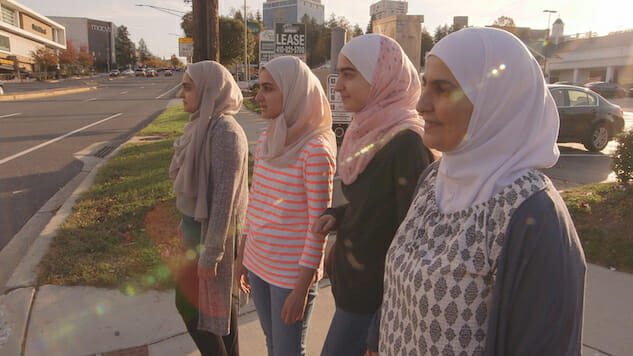Educate Yourself About Refugee Families with Epix’s This Is Home
Photo: Courtesy of Epix
“I am Syria.”
“I am from Syria,” prompts an off-camera voice.
It takes three or four tries to get that sentence out, but the first iteration is, if unintentionally, kind of deep.
Hey: Let’s actually take stuff like xenophobia and racism and white supremacy off the table for a second. Let’s say your concerns are 100% devoid of those ideations. Let’s say your anxieties are around things like the economy, the school system, the highways, the water supply—our human and non-human resources and the plain fact that a given piece of dirt has a finite number of beings it can sustain, because that is most definitely a thing. Let’s assume you are afraid your quality of life is under threat not because you harbor a distrust of people who practice a different religion, speak a language you don’t speak, or have a particular hair follicle shape or melanin count. Let’s assume your concerns are genuinely 100% pragmatic. Yes?
OK: If you happen to be one of the people who think criminalizing immigration is an effective “deterrent” that will help keep everyone-and-their-dog from overwhelming our infrastructure and crashing the system? If you’ve ever said anything remotely like, “Yeah, well, if people don’t want to be separated from their children, maybe they shouldn’t attempt to cross the border?” Or if you’re operating under the assumption that everyone on Earth would move to the United States if we allowed them to Because Obviously It Is the Greatest Nation on Earth? Would you do me a solid and watch This Is Home before opening your mouth on the subject again? If it does not modify or revise your assumptions in any way, so be it. But I suspect it might be a good reality check.
-

-

-

-

-

-

-

-

-

-

-

-

-

-

-

-

-

-

-

-

-

-

-

-

-

-

-

-

-

-

-

-

-

-

-

-

-

-

-

-








































